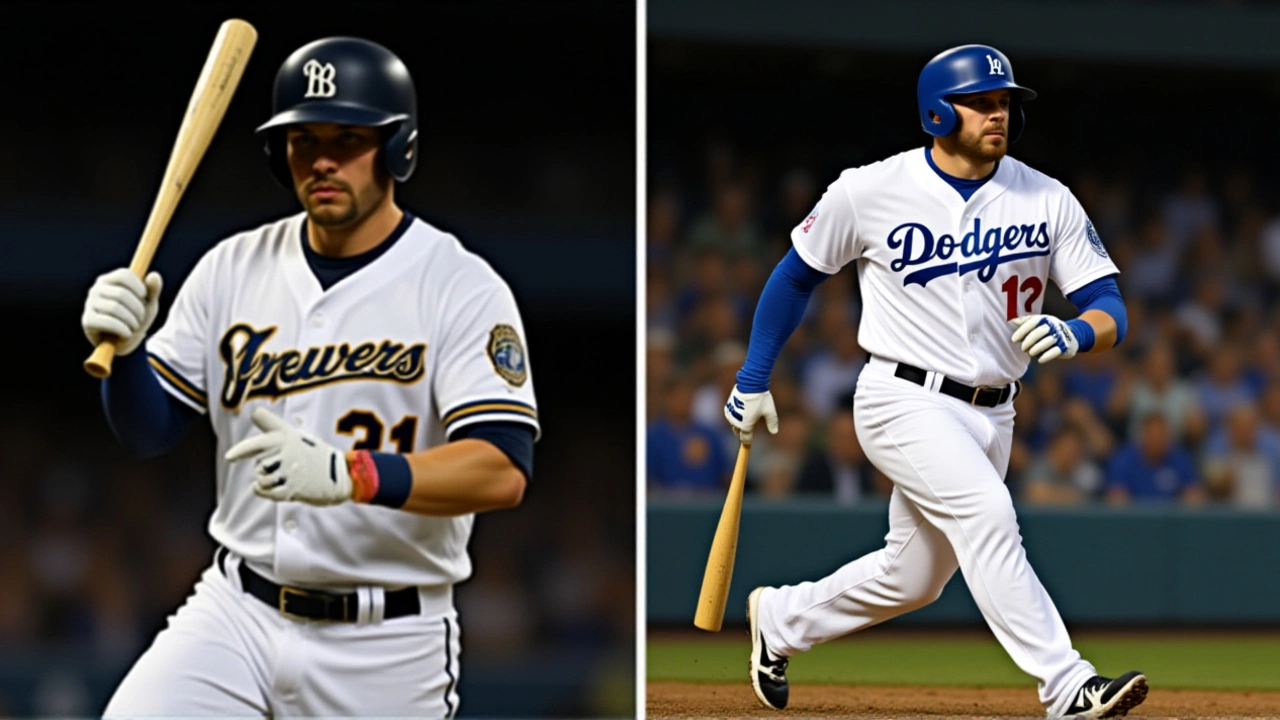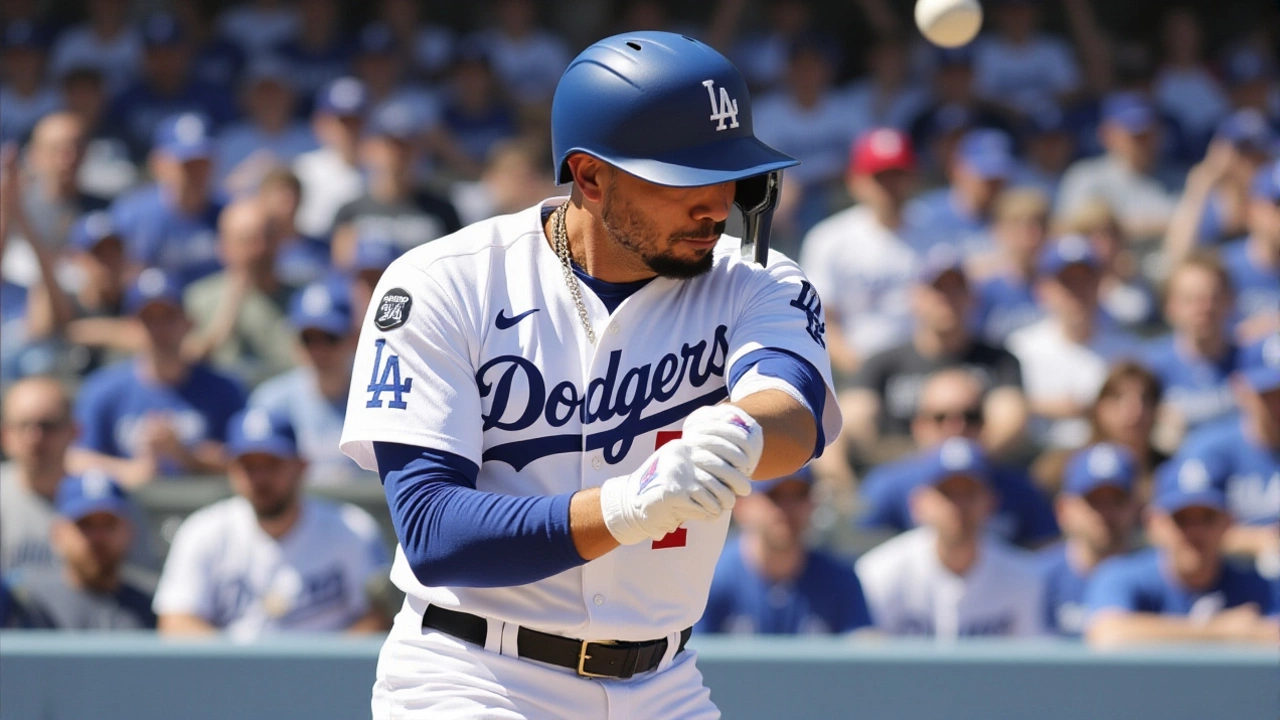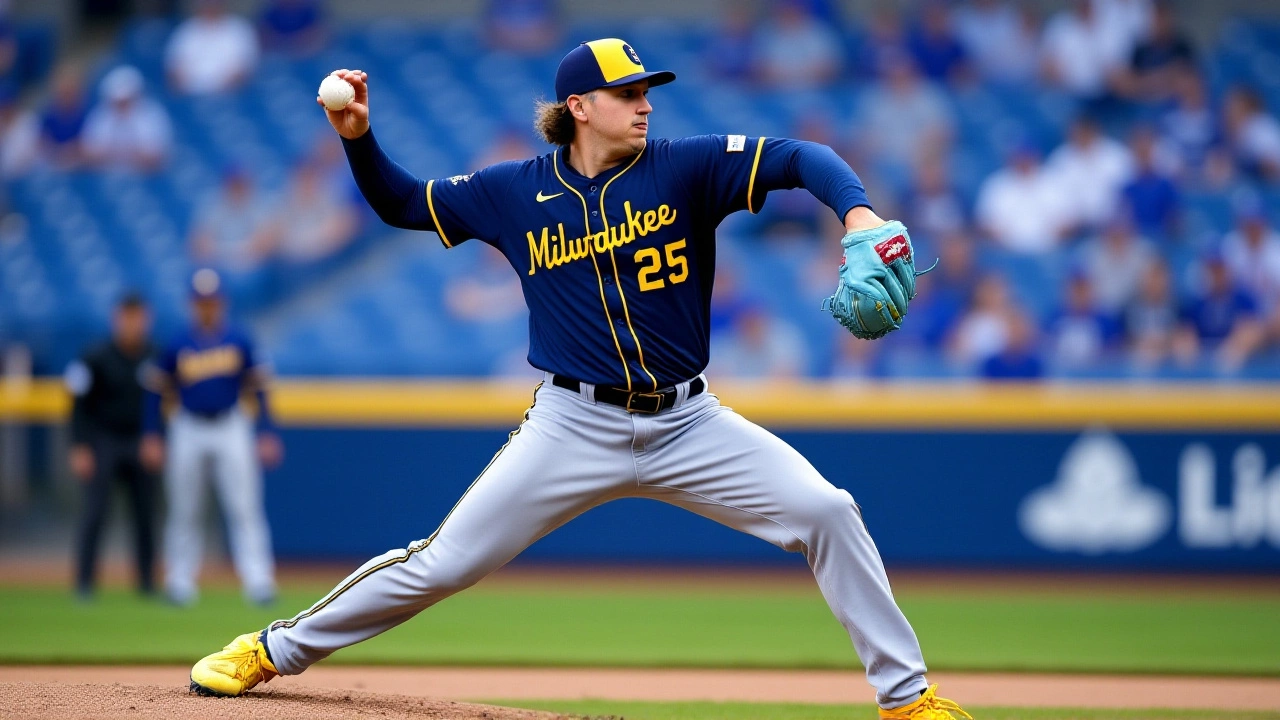
When Los Angeles Dodgers clinched the NLCS on Oct. 19, 2018, the city of Los Angeles erupted in a chorus of cheers that echoed all the way to Milwaukee’s Miller Park. The best‑of‑seven showdown between the Dodgers and the Milwaukee Brewers had been billed as a clash of two division‑title winners who earned their spots via tiebreaker games, and it lived up to every headline‑grabbing expectation.
How the Series Unfolded
Game 1 opened the saga on Oct. 12 at Miller Park, where the Brewers rode a 12‑game winning streak to a 6‑5 victory. A night‑time thunderstorm rolled in, but the rain never stopped the fireworks. By contrast, Game 2 turned the tide when Cody Bellinger, Dodgers' outfielder delivered a walk‑off single in the bottom of the 13th, sealing a 4‑3 win for Los Angeles.
The action shifted to Dodger Stadium for Games 3‑5. Junior Guerra, the Brewers’ right‑hander, blanked the Dodgers 4‑0 in Game 3, putting Milwaukee ahead 2‑1. Yet the Dodgers answered back; Justin Turner, a veteran infielder, drove a clutch two‑run single in Game 4 for a 2‑1 win that knotted the series.
Game 5 saw Clayton Kershaw, the Dodgers’ ace, take the mound. He allowed just two runs while the Dodgers’ offense clicked, delivering a 5‑2 triumph and taking a 3‑2 series lead. The Brewers weren’t done, though. Game 6 back in Milwaukee was a frantic 8‑7 affair that forced a decisive Game 7.
Game 7 unfolded under a crisp October sky at Miller Park. Clayton Kershaw again took the hill, this time as a late‑inning ‘weapon’ for the Dodgers. He surrendered just one run over six innings, and the Dodgers cruised to a 5‑1 victory, sealing the series 4‑3.
Key Performers and Turning Points
Beyond Kershaw’s dominance, the series featured a parade of memorable moments. Yasiel Puig’s cannon‑arm throw from right field in Game 7 was wild enough to become a meme, while Christian Yelich, the NL MVP, collected three extra‑base hits and drove in a run for Milwaukee.
For the Dodgers, the younger core shone. Bellinger’s walk‑off, Turner’s clutch hit, and the steady presence of Yasiel Puig (who contributed a key double in Game 5) kept the momentum moving eastward. Meanwhile, the Brewers leaned on veteran power‑hitter Mike Moustakas, who belted a home run in Game 6 that forced the ninth‑inning drama.
Broadcast, Sponsorship, and Fan Reaction
All seven games were telecast nationally by Fox Broadcasting Company. The series carried the official title National League Championship Series presented by Google AssistantMiller Park, Milwaukee, highlighting the tech giant’s growing foothold in sports sponsorship. Social‑media chatter peaked after Game 7, with the hashtag #DodgersWin trending in both markets.

What the Win Means for Both Franchises
For Los Angeles, the victory marked the first back‑to‑back National League pennants since the 1977‑78 seasons and continued a streak of six straight NL West titles (2013‑2018). It also secured a third consecutive NLCS appearance, cementing the Dodgers as the decade’s defining NL powerhouse.
Milwaukee, on the other hand, celebrated its inaugural NLCS appearance since the club’s 1998 league switch. The Brewers’ 12‑game regular‑season winning streak that preceded the series remains a franchise record, and the run cemented Christian Yelich’s Hall‑of‑Fame‑type season (he posted a .326 average, 36 homers, 110 RBIs).
Future Outlook: World Series and Beyond
The Dodgers’ NL crown set up a World Series clash with the Boston Red Sox. Despite a valiant effort, Los Angeles fell short, losing the series 4‑1. The defeat sparked debates about the Dodgers’ bullpen depth and whether the earlier seven‑game grind cost them.
Meanwhile, the Brewers entered the offseason with a core of youth and a surplus of salary‑flexibility. Analysts predict they’ll be active in the upcoming free‑agency window, targeting a rotation upgrade to complement Guerra and a possible trade for a left‑handed reliever.

Historical Context: NLCS Milestones
The 2018 NLCS will be remembered for a few firsts. It was the first time since 2012 that a National League Championship Series required a Game 7. It also marked the inaugural postseason meeting between the Dodgers and Brewers—two clubs that had never faced each other in the playoffs despite sharing the same league for two decades.
Furthermore, the series underscored a shifting competitive balance in the NL. The Brewers’ rapid rise from a perennial underdog to a pennant contender within a decade mirrors the Dodgers’ own transformation from a 2013 rebuild to a modern dynasty.
Frequently Asked Questions
How did the Dodgers manage to win Game 7 after losing Game 6?
Dodgers’ ace Clayton Kershaw delivered a dominant six‑inning performance, allowing just one run while striking out eight. Early offensive bursts from Bellinger and Turner's RBI single gave LA a three‑run cushion, and the bullpen shut down the Brewers’ late‑inning rally, sealing a 5‑1 win.
What made the 2018 NLCS historically significant for the Brewers?
It was Milwaukee’s first NLCS appearance since the franchise moved from the American League in 1998. The series also highlighted Christian Yelich’s MVP season, reinforcing the Brewers’ emergence as a legitimate contender.
Did the seven‑game series affect the Dodgers’ World Series performance?
Many analysts argue the grueling NLCS fatigued Los Angeles’ bullpen, which showed signs of strain against Boston’s potent lineup. The short‑turnaround left the Dodgers with fewer effective relievers, contributing to their 4‑1 World Series loss.
What are the Brewers likely to do in the upcoming offseason?
The front office is expected to pursue a high‑caliber starting pitcher and strengthen the left‑handed bullpen. With salary‑flexibility and a youthful core, Milwaukee aims to convert the NLCS run into a World Series push.
How did Fox and Google Assistant’s sponsorship shape the broadcast?
Fox integrated Google Assistant prompts throughout the telecast, allowing viewers to ask real‑time stats via voice. The partnership added interactive layers to the traditional baseball broadcast, establishing a new model for sports sponsorship.